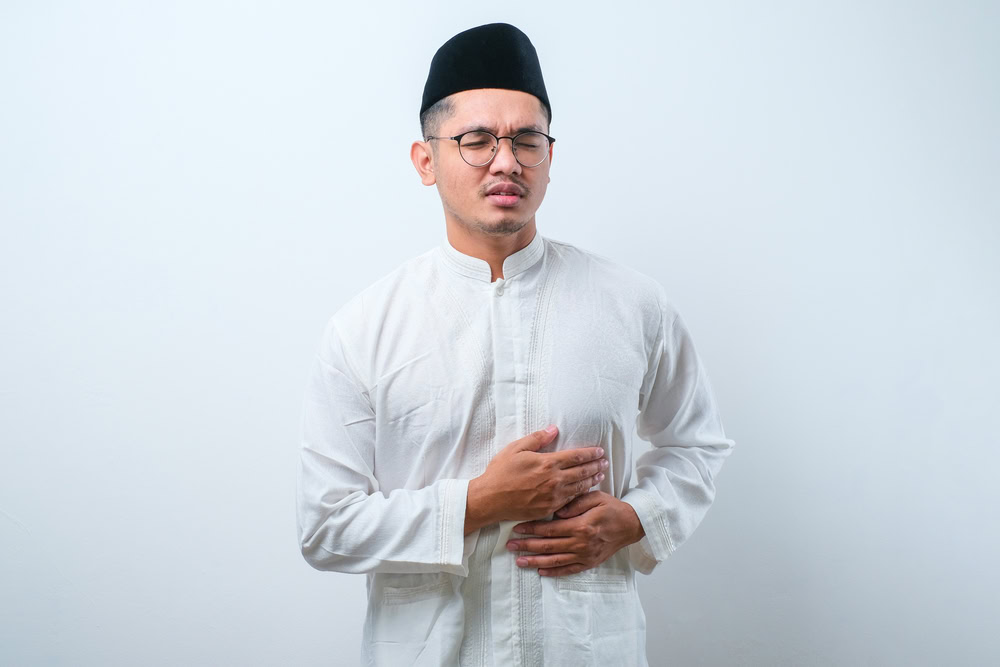How Should I Handle Constant Feelings of Gas?
Answered by Shaykh Dr. Muhammad Abu Bakr Badhib
Question
How should I deal with the constant feeling of gas?
Answer
In the name of Allah, and all praise is due to Allah, and blessings and peace be upon our master Muhammad, the Messenger of Allah, his Family, his Companions, and those who follow him.
Ease in Religion
Sacred Law takes into account the circumstances of the obligated individuals and ties many of the legal rulings to one’s ability, as seen in the Hajj, one of the five pillars of Islam. It also restricts the validity of worship to certainty rather than doubt. There is a famous legal maxim that states, “Certainty is not lifted by doubt.” Many subsidiary issues fall under this principle.
The question at hand is related to this principle. Qadi Marwazi, one of the prominent early Shafi‘i scholars, states: “This is a well-established principle in Sacred Law: whatever is established with certainty is not nullified by subsequent doubt; rather, it is only nullified by certainty equal to or stronger than the previous certainty.” [Marwazi, al-Ta‘liqa]
He supported this with the hadith in which the Prophet (Allah bless him and give him peace) said:
“Satan comes to one of you and blows between his buttocks and makes him imagine that he has passed wind. If one of you finds this, he should not leave his prayer unless he hears a sound (externally) or smells an odor.”
In some narrations, it adds: “until he hears a sound with his ears or smells an odor with his nose” [Bazzar; Tabarani, al-Mu‘jam al-Kabir]
Also, as from the hadith of Hasan Ibn Ali (Allah be pleased with them both), the Prophet (Allah bless him and give him peace) said:
“Leave that which makes you doubt for that which does not make you doubt.” [Tirmidhi]
Ibn Raslan stated: “This hadith is one of the foundational principles of Islam and a significant rule of jurisprudence, which is: things are judged to remain as they originally were until the certainty of the contrary is established, and incidental doubt does not affect them. This includes the issue discussed in the book, which is: if one is certain of being in a state of purity and then doubts about having broken it, he is judged to remain in a state of purity, though it is recommended for him to perform ablution as a precaution.” [Ibn Raslan, Sharh Sunan Abi Dawud]
Conclusion
Thus, it becomes clear from these texts that the feeling of gas in the stomach and the production of sounds without hearing a sound (from within) or detecting an odor does not affect the validity of one’s ablution, and the person remains in a state of purity. Unless the wind exits the body audibly or its smell is detected, as explicitly stated in the hadith, one’s state of purity is unaffected. This demonstrates the greatness of Islamic Law, which does not leave a Muslim confused about the validity of their purification. It has clarified everything with unparalleled detail.
And Allah is the Grantor of success.
[Shaykh] Dr. Muhammad Abu Bakr Badhib
Shaykh Dr Muhammad Abu Bakr Badhib is a prominent Islamic scholar from Yemen born in Shibam, Hadhramaut, in 1976. He received his degree in Shari‘a from Al-Ahqaf University, a master’s degree from the Islamic University of Beirut, and a PhD in Usul al-Din from Aligarh Muslim University (AMU).
He studied under great scholars such as Shaykh al-Habib Ahmad Mashhur al-Haddad, Shaykh Fadl Ba‘ fadl, Habib Salim al-Shatiri, Habib Ali Mashhur bin Hafeez, and others. He has served as the Director of Publications at Dar al-Fiqh, the former Deputy Director of Cultural Relations at Al-Ahqaf University, a former Assistant for Employee Affairs at Atiyah Iron Company, a researcher at the Sunna Center affiliated with the Dallah al-Baraka Foundation, and a researcher at Al-Furqan Foundation’s Makka al-Mukarrama and Madina al-Munawwara Encyclopedia branch.
Currently, he is a researcher at Al-Furqan Foundation’s Makka al-Mukarrama and Madina al-Munawwara Encyclopedia branch, teaches traditionally through the Ijaza system at Dar al-Fuqaha in Turkey, supervises the Arabic department at Nur al-Huda International Institute (SeekersGuidance), and is a member of the Board of Trustees of the Manuscript House in Istanbul.
His works include “The Efforts of Hadhramaut Jurists in Serving the Shafi‘i School,” “Contributions of Hadhramaut Scholars in Spreading Islam and its Sciences in India,” “Hada’iq al-Na‘im in Shafi‘i Fiqh,” in addition to verifying several books in Fiqh, history, the art of biographies, and Asanid (chains of narration).
